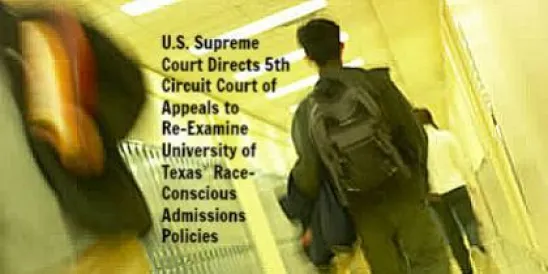In the midst of the global pandemic, the United States Department of Education (DOE) updated its Title IX guidance and recently issued accompanying final regulations. In 2017, United States Department of Education Secretary Betsy DeVos revoked Obama-era Title IX guidance. On May 6, 2020, Secretary DeVos released the final regulations relating to Title IX in K-12 and postsecondary institutions.
The new regulations create controversy, with advocates on both sides frustrated with the new language. However, it is important to note that this guidance is meant to increase the responsibilities so schools and colleges take sexual harassment seriously, but continue to ensure that both parties receive due process. The new regulations attempt to provide additional due process for the accused and the accuser, including the opportunity to cross examine both parties.
The guidance impacts both K-12 and postsecondary institutions. Specifically, K-12 schools are notified that the DOE plans to enforce gender nondiscrimination law. Requiring schools to respond to any discrimination claim when they have “actual knowledge” instead of the prior standard of “reasonably should”. The final rule also allows parents to file complaints on behalf of their children.
The new rules require school officials to decide whether to use the “preponderance of evidence” standard employed under the Obama administration, or the “clear and convincing evidence” standard in reaching decisions on complaints. The latter standard is a higher bar to clear to prove misconduct.
The new regulations define sexual harassment as “unwelcome conduct on the basis of sex that is so severe, pervasive, and objectively offensive that it effectively denies a person equal access to the school’s education program or activity.” Importantly, this standard is stricter than the standard used in employment law or other circumstances. Educational institutions are in violation of Title IX if they are “deliberately indifferent” to such conduct.
The DOE list key provisions of its new Title IX regulation as follows:
-
Defines sexual harassment to include sexual assault, dating violence, domestic violence, and stalking, as unlawful discrimination on the basis of sex;
-
Provides a consistent, legally sound framework on which survivors, the accused, and schools can rely;
-
Requires schools to offer clear, accessible options for any person to report sexual harassment;
-
Empowers survivors to make decisions about how a school responds to incidents of sexual harassment;
-
Requires the school to offer survivors supportive measures, such as class or dorm reassignments or no-contact orders;
-
Protects K-12 students by requiring elementary and secondary schools to respond promptly when any school employee has notice of sexual harassment;
-
Holds colleges responsible for off-campus sexual harassment at houses owned or under the control of school-sanctioned fraternities and sororities;
-
Restores fairness on college and university campuses by upholding all students’ right to written notice of allegations, the right to an advisor, and the right to submit, cross-examine, and challenge evidence at a live hearing;
-
Shields survivors from having to come face-to-face with the accused during a hearing and from answering questions posed personally by the accused;
-
Requires schools to select one of two standards of evidence, the preponderance of the evidence standard or the clear and convincing evidence standard – and to apply the selected standard evenly to proceedings for all students and employees, including faculty;
-
Provides “rape shield” protections and ensures survivors are not required to divulge any medical, psychological, or similar privileged records;
-
Requires schools to offer an equal right of appeal for both parties to a Title IX proceeding;
-
Gives schools flexibility to use technology to conduct Title IX investigations and hearings remotely;
-
Protects students and faculty by prohibiting schools from using Title IX in a manner that deprives students and faculty of rights guaranteed by the First Amendment.
Notably, the regulations reiterate the need for Title IX coordinators at K-12 and postsecondary institutions, and require policy and notification requirements at all institutions.




 />i
/>i

